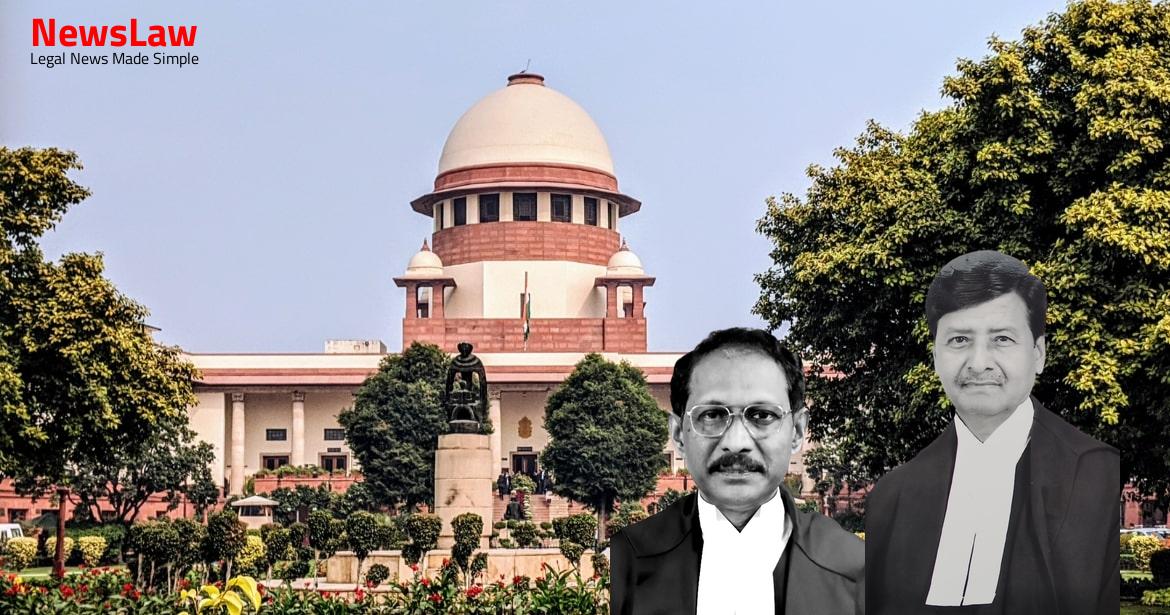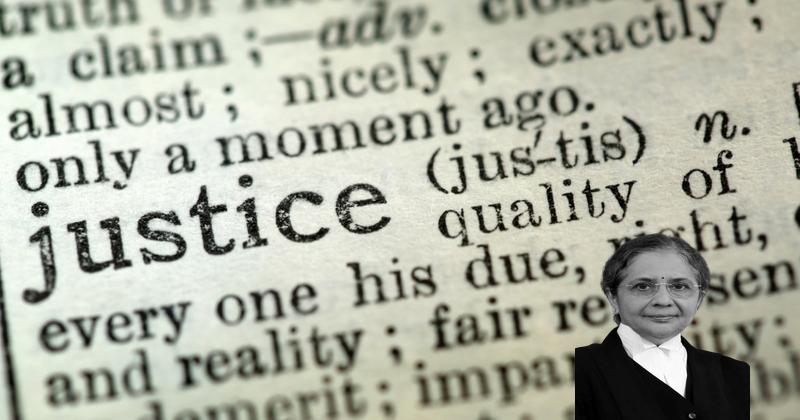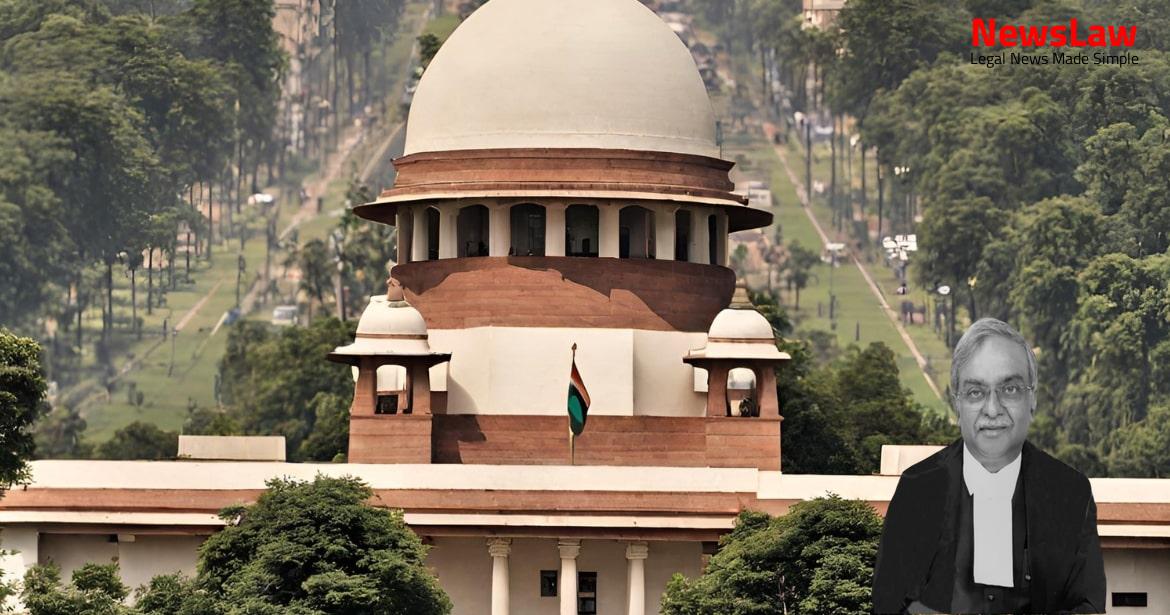Delve into a complex legal case revolving around a child custody jurisdiction dispute, where the court’s legal analysis played a pivotal role. This summary focuses on the court’s thorough examination of relevant factors and its decision-making process. Stay tuned to understand the intricacies of this legal dilemma.
Facts
- The appellant has been residing in the USA for around two decades.
- The marriage between the appellant and Respondent No.3 was conducted in Bengaluru on 19.03.2008 as per Hindu rites.
- The appellant’s son, Aarya Ranjani Rohith, was born in Washington, USA on 03.02.2011 and is a naturalized American citizen.
- The appellant and Respondent No.3 obtained Green Cards on 07.09.2010.
- Conflicts in the marriage led to jurisdictional disputes regarding custody of the minor child.
- The US Court passed orders for the return of the child to the USA.
- A Habeas Corpus writ petition was filed by the appellant in the High Court of Karnataka seeking custody of the child.
- The High Court rejected the writ petition but granted visitation rights to the appellant.
- The High Court dismissed the petition citing lack of jurisdiction under Section 9 of the Guardians and Wards Act, 1890.
Also Read: Admission Deadline Adherence in Medical Courses
Arguments
- The appellant contends that the child is now studying in a school in Bengaluru.
- Respondent No.3 argued that the child was not in illegal custody and should remain with her.
- She claimed that she was permitted to have custody of the child by the appellant and US Courts.
- Appellant alleges that the High Court ignored US Court orders and did not consider the child’s best interest.
- An email from the appellant on 15.03.2020 was presented as consent for the child’s custody.
- The appellant tried to show the child’s affinity towards him.
- Respondent No.3 opposed the appellant’s contentions.
Also Read: From Nominee to Disqualified: Supreme Court Scrutinizes Age Evidence, Declares Election Invalid
Analysis
- The High Court failed to give due weight to the fact that the child was born in the USA and lived there until 2020 when considering his welfare.
- The court overlooked the efficacy of the orders passed by the US Courts directing the return of the child to the USA.
- The High Court incorrectly assumed that the US Court’s suspension of spousal support implied permission for respondent No.3 to retain custody of the child.
- The initiation of legal proceedings by the appellant in the US Courts was deemed motivated and not in the best interest of the child by the High Court.
- The High Court strayed from pertinent jurisdictional issues by delving into irrelevant aspects during the consideration of the case.
- There were occasions where American courts ordered the return of the child to the USA, indicating the importance placed on the child’s return for his best interests.
- Despite the marriage taking place in Bengaluru, the High Court believed the US Courts lacked jurisdiction without adequate consideration of relevant factors.
- The analysis lacked proper evaluation of the child’s upbringing in the USA for nearly a decade and its significance in determining his best interest.
- In cases involving the removal of a child to a non-Convention country, the court in the country where the child has been taken must prioritize the child’s welfare above all else.
- The court should consider the foreign court order as just one factor in the decision-making process, unless it is necessary to act promptly in the child’s best interest.
- Summary jurisdiction may be exercised if the proceeding was initiated promptly after the child’s removal, the child has not become established in the new environment, and it is deemed beneficial for the child to return to their native state.
- The child is a naturalised American citizen with an American passport.
- Consideration for the welfare of the child supports the order for the child to return to the USA, his native country.
- The child has been raised in the social and cultural values of the USA, accustomed to its lifestyle, language, customs, rules, and regulations.
- Returning to the USA will provide the child with better opportunities and prospects as a naturalised American citizen.
- Respondent No.3 and the appellant must ensure the child’s return to the USA
- They should facilitate the child’s transfer from the current school to a school in the USA
- Respondent No.3 may choose to accompany the child to the USA
- If needed, arrangements for accommodation for Respondent No.3 and her parents in the USA should be communicated to the appellant
Decision
- The observations made in this judgment will not affect respondent No.3 and the proceedings will proceed independently.
- The appellant must honor the assurance given to the Court and facilitate the child’s return to the USA along with respondent No.3 and her parents.
- All legal formalities for the child’s return to the USA must be completed by respondent No.3 and the appellant within two months to minimize interruption in the child’s studies.
- No costs are ordered.
- Respondent No.3 can seek custody or visitation rights for the child through the appropriate forum in the USA.
- The writ petition is allowed, and respondent No.3 must ensure the child’s immediate return to the USA.
- The appeal is disposed of as outlined.
- All pending applications are resolved.
Case Title: ROHITH THAMMANA GOWDA Vs. THE STATE OF KARNATAKA (2022 INSC 770)
Case Number: C.A. No.-004987-004987 / 2022



